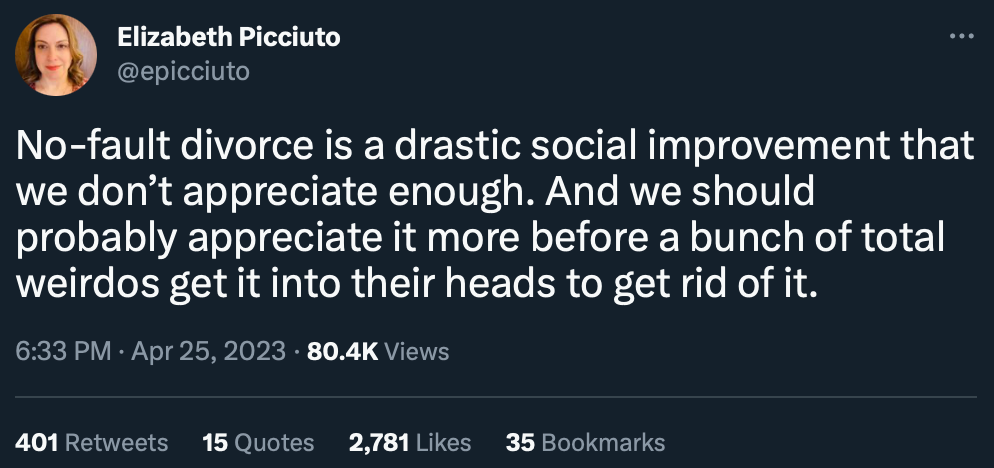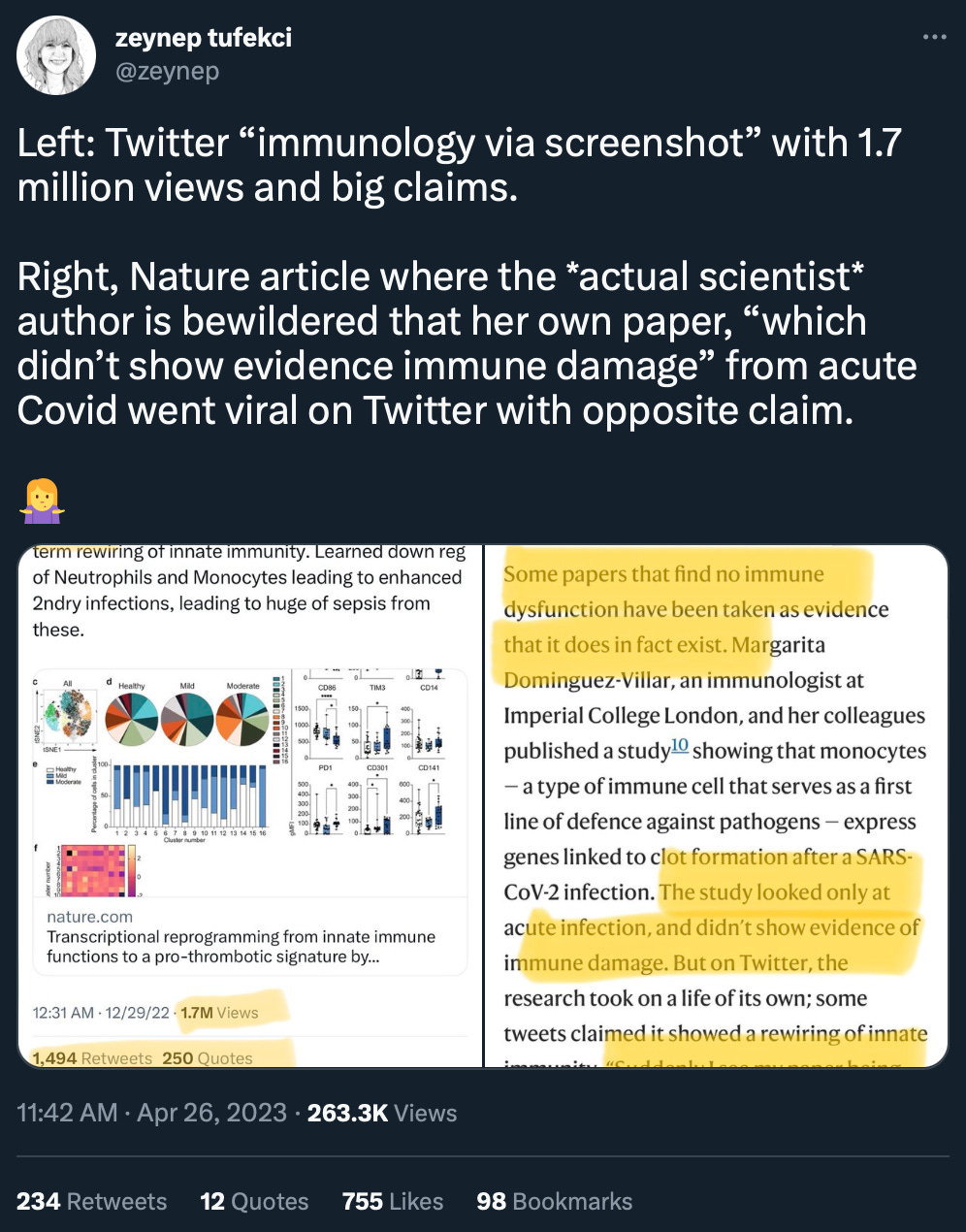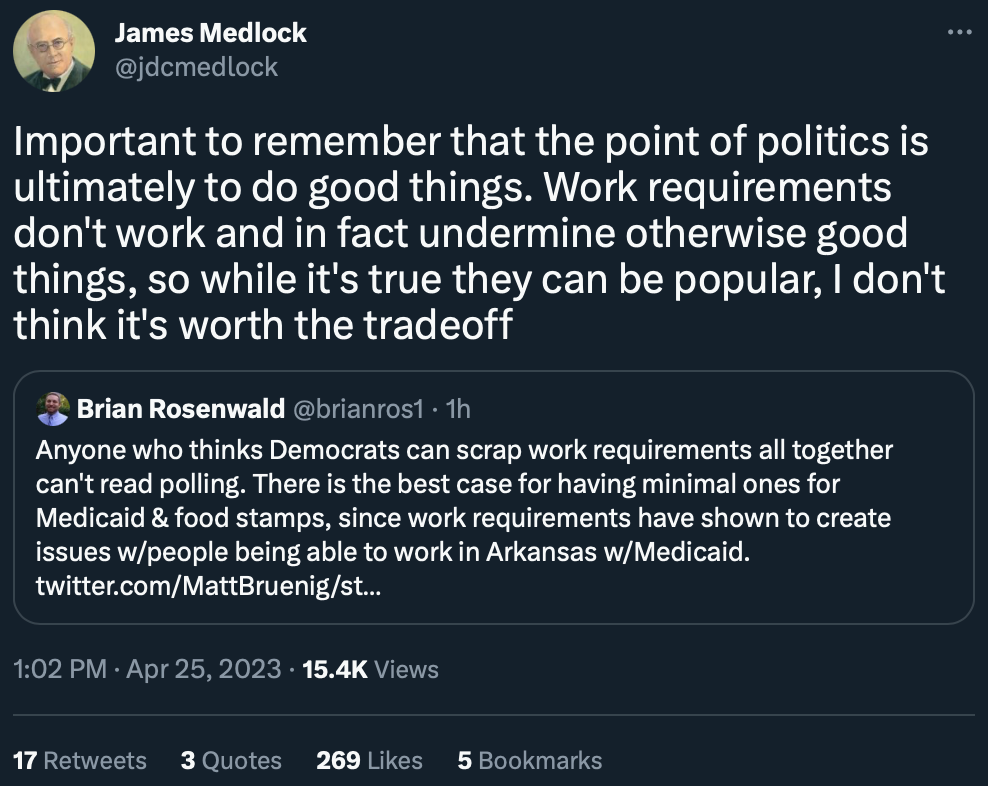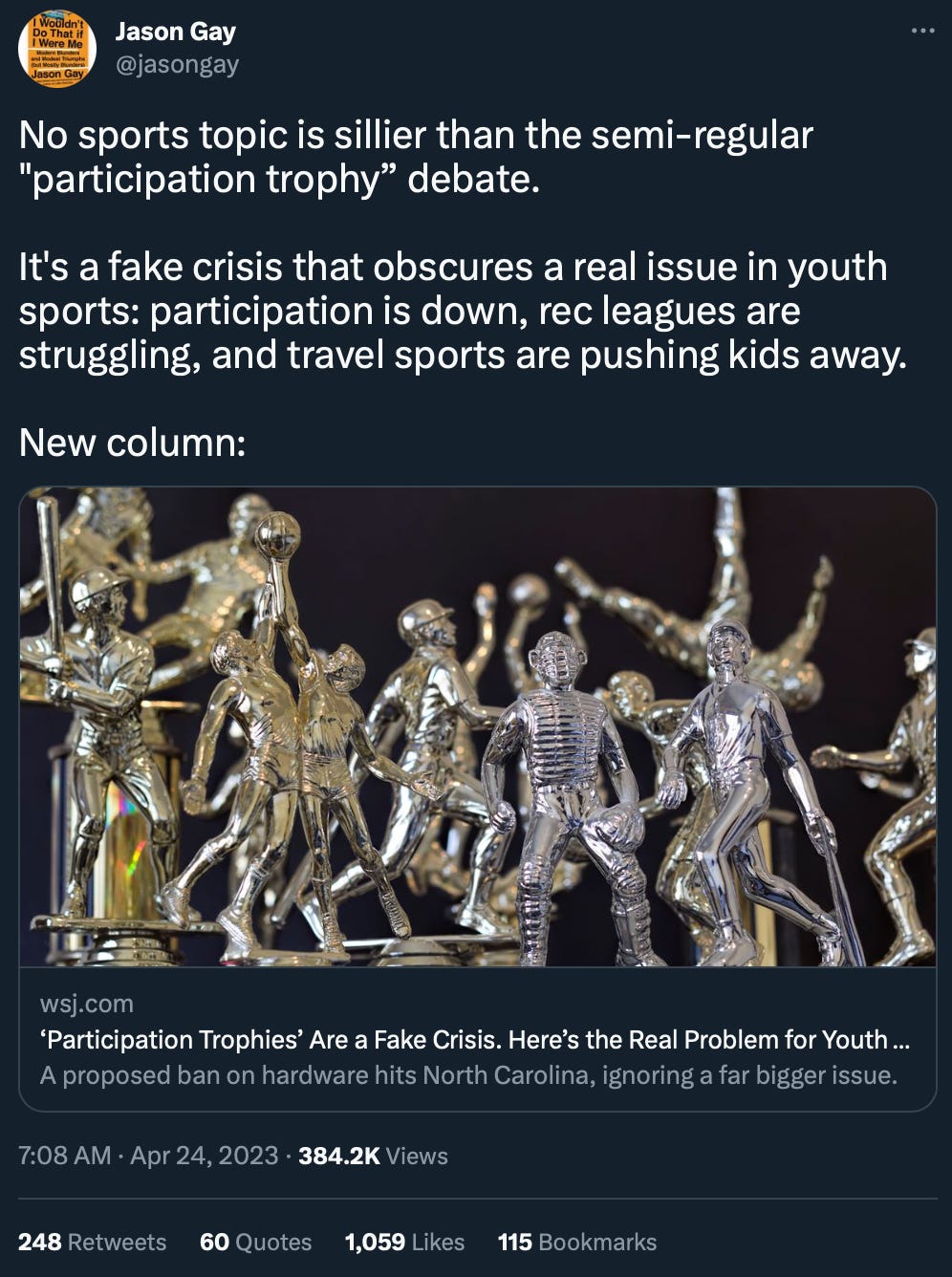The Discourse Report: April 27, 2023
Welcome to DiscRep, Berny Belvedere’s daily guide to the public discourse for Arc members. Got something you think I should include in a future entry? Write me at berny@arcdigital.media. To discuss any of today’s items, post a comment below.
Articles
A Washington Post explainer by Aaron Gregg on DeSantis vs Disney.
What began as a war of words over classroom discussions of homosexuality is now poised to become a protracted court battle between two of Florida’s most powerful entities: the conservative governor’s office and one of the state’s largest employers.
Disney ramped up a long-running dispute with Gov. Ron DeSantis (R) on Wednesday when it filed suit against him for allegedly violating its constitutional rights. DeSantis is seen as a leading candidate for the Republican Party’s 2024 nomination, and the feud with Disney has become a talking point in his fight against what he calls “woke corporations.” The California-based company, for its part, accused DeSantis of waging a “relentless campaign to weaponize government power.”
Tom Nichols writes in The Atlantic that “Tucker Carlson is the Emblem of GOP Cynicism.”
Every night, Carlson encouraged American citizens to join him in his angry nihilism, telling his fans that America and its institutions were hopelessly corrupt, and that they were essentially living in a failed state. He and his fellow Fox hosts, meanwhile, presented themselves as the guardians of the real America, crowing in ostensible solidarity with an audience that, as we would later learn from the Dominion lawsuit, they regarded with both contempt and fear.
An especially hateful aspect of Carlson’s rants is that they often targeted the institutions and norms—colleges, the U.S. military, capitalism itself—that help so many Americans get a chance at a better life. No matter the issue, Carlson was able to find some resentful, angry, us-versus-them angle, tacking effortlessly from sounding like a pompous theocrat one day to a founding member of Code Pink the next. If you were trying to undermine a nation and dissolve its hopes for the future, you could hardly design a better vehicle than Tucker Carlson Tonight.
In Politico, Jonathan Martin asks, “Is Trump inevitable?”
Yes, there are glaring differences between 2016 and 2024, but what alarms so many Republicans (and encourages the fatalism) is another similarity that’s less obvious. Just as progressives privately worried that Hillary Clinton and her party’s moderates would never truly embrace Bernie Sanders if he prevailed, many pessimistic Republicans wonder the same about Trump next year. …
Yet there’s another class of Republicans who look at President Biden’s dismal standing and reject the moping and detest the fatalism about Trump on top of the ticket. They say all that’s needed to put a Republican in the White House is to nominate someone other than Trump.
Over at The Dispatch, I make the case for Asa Hutchinson. My argument is that Hutchinson is the ideal candidate for those who want (a) a solid conservative with (b) vast experience who (c) explicitly rejects Trumpism.
Hutchinson is a competent, experienced evangelical Christian who wants what nearly every conservative wants, minus the country-degrading acids of Trumpism. Conservatives who ignore that the party’s MAGA-centric vision led to undeniable electoral underperformance across three consecutive cycles—2018, 2020, and 2022—and opt for more of the same when there is a viable alternative are doing the movement, and the country, a huge disservice.
In a sane world, Hutchinson could beat Biden, but unless conservatives part ways with Trump’s baseless electoral conspiracies, his insurrectionary incitement, his incapacity to restrain himself from committing impeachable offenses, and his limitless boorishness, Joe Biden will still be president come January 21, 2025.
Notes
Tweets
Clips
When Will the Machines Come Alive? (Bloomberg)





